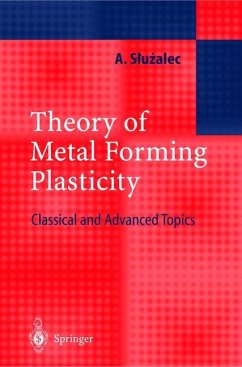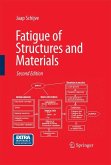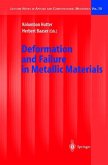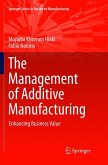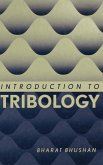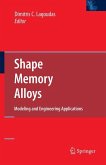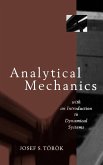This book provides a modern and comprehensive approach to metal forming plasticity. The contents supply readers with an up-to-date review of elementary concepts of metal forming plasticity, the necessary background material on continuum mechanics, and a discussion of the classical theories of metal forming plasticity. Final chapters introduce the fundamentals of sensitivity in metal forming and stochastic metal forming plasticity. Theory of Metal Forming Plasticity will be of particular interest to graduate students and researches working on plasticity in deparments of engineering mechanics, materials and mechanical engineering.
The intention of this book is to reveal and discuss some aspects of the metal fo- ing plasticity theory. The modern theory describes deformation of metallic bodies in cold and hot regimes under combined thermal and mechanical loadings. Th- mal and deformation fields appear in metal forming in various forms. A thermal field influences the material properties, modifies the extent of plastic zones, etc. and the deformation of metallic body induces changes in temperature distribution. The thermal effects in metal forming plasticity can be studied at two levels, - pending on whether uncoupled or coupled theories of thermo-plastic response have to be applied. A majority of metal forming processes can be satisfactorily studied within an uncoupled theory. In such an approach the temperature enters the stress-strain relation through the material constants and through the thermal dilatation. The description of thermo-plastic deformation in metal forming is c- ried out on the ground of thermodynamics.
Hinweis: Dieser Artikel kann nur an eine deutsche Lieferadresse ausgeliefert werden.
The intention of this book is to reveal and discuss some aspects of the metal fo- ing plasticity theory. The modern theory describes deformation of metallic bodies in cold and hot regimes under combined thermal and mechanical loadings. Th- mal and deformation fields appear in metal forming in various forms. A thermal field influences the material properties, modifies the extent of plastic zones, etc. and the deformation of metallic body induces changes in temperature distribution. The thermal effects in metal forming plasticity can be studied at two levels, - pending on whether uncoupled or coupled theories of thermo-plastic response have to be applied. A majority of metal forming processes can be satisfactorily studied within an uncoupled theory. In such an approach the temperature enters the stress-strain relation through the material constants and through the thermal dilatation. The description of thermo-plastic deformation in metal forming is c- ried out on the ground of thermodynamics.
Hinweis: Dieser Artikel kann nur an eine deutsche Lieferadresse ausgeliefert werden.

